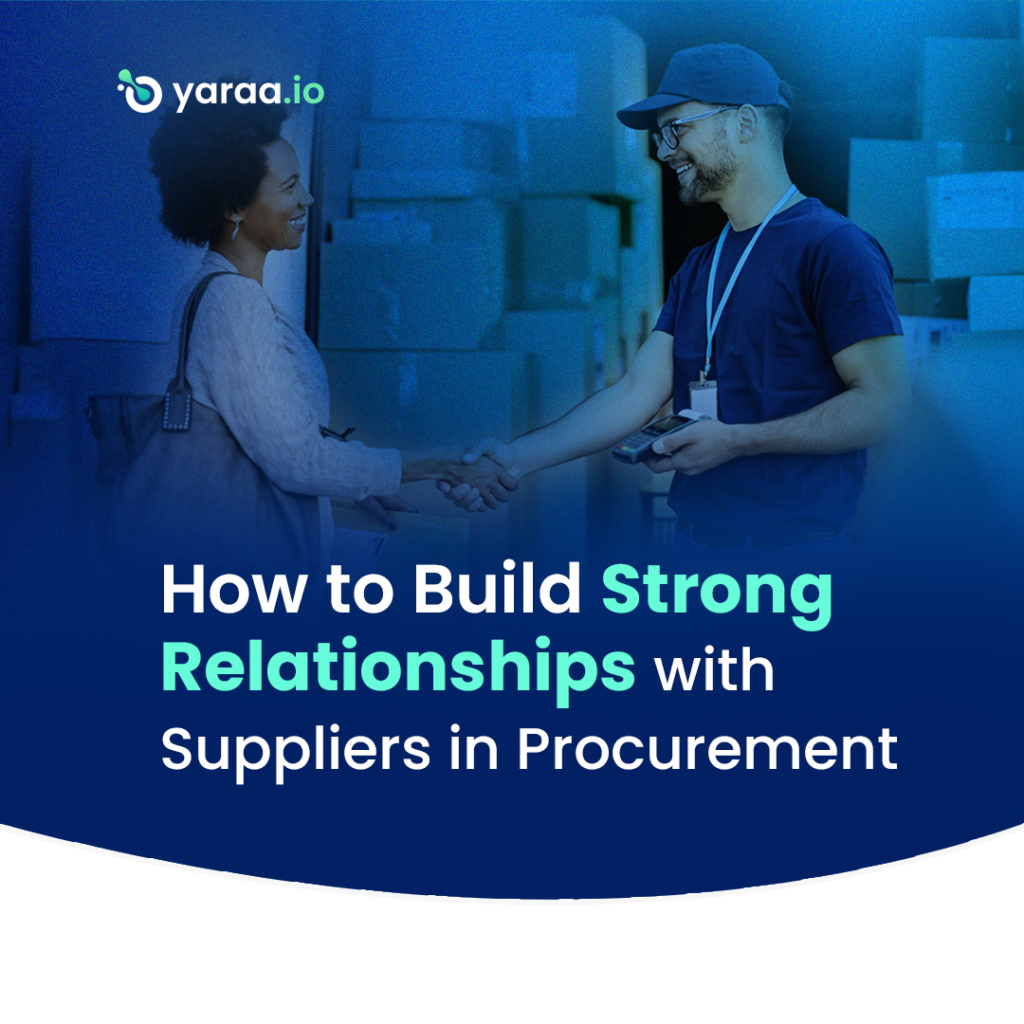As procurement professionals, we all know the importance of building strong relationships with our suppliers. A good relationship with suppliers can mean the difference between success and failure in procurement. It can also result in cost savings, improved delivery times, and better-quality products. However, building strong relationships with suppliers is not always easy. It requires time, effort, and a certain level of skill. In this blog post, we will explore some of the best practices for building strong relationships with suppliers in procurement.
Best Practices for Building Supplier Relationships
1. Clear Communication:
Clear communication is the foundation of any good relationship, and it is no different when it comes to building a strong relationship with suppliers. Clear communication is essential to ensure that suppliers understand your requirements, deadlines, and expectations. In procurement, it is critical to communicate clearly about pricing, delivery times, and product quality. Regular communication can help build trust and avoid misunderstandings.
2. Trust:
Trust is an essential element in any successful relationship. It is also critical in supplier relationships. Trust is built over time and is the result of consistent actions and behaviors. You can build trust with suppliers by honoring your commitments, being transparent about your needs, and showing that you value their contributions. Building trust is a long-term process, and it requires effort and time.
3. Collaboration:
Collaboration is the process of working together to achieve a common goal. In procurement, collaboration can help build strong relationships with suppliers. When working with suppliers, it is essential to involve them in the process and seek their input. Collaborating with suppliers can lead to better product designs, more efficient processes, and improved outcomes. Additionally, collaboration can help build trust and foster a sense of partnership.
Also read: THE ROLE OF E-PROCUREMENT IN DRIVING INNOVATION AND BUSINESS
4. Transparency:
Transparency is the act of being open and honest about your actions and intentions. In procurement, transparency can help build trust and improve relationships with suppliers. Being transparent about your needs, expectations, and requirements can help suppliers better understand your needs and work more effectively. Additionally, transparency can help prevent misunderstandings and conflicts.

5. Respect:
Respect is the act of treating others with dignity and recognizing their value. In procurement, it is critical to respect suppliers and their contributions. Treating suppliers with respect can help build strong relationships, promote collaboration, and lead to better outcomes. Additionally, showing respect can help create a positive work environment and lead to better communication.
6. Evaluate Performance:
Evaluating supplier performance is critical to building strong relationships. It is essential to measure supplier performance regularly to ensure that they are meeting your requirements and expectations. Regular evaluation can help identify areas for improvement, promote accountability, and foster continuous improvement. Evaluating performance also sends a clear message to suppliers that you value their contributions and are committed to building a strong relationship.
7. Manage Conflict:
Conflict is a natural part of any relationship, and it is no different in supplier relationships. However, it is essential to manage conflict effectively to avoid damaging relationships. When conflicts arise, it is critical to address them promptly and respectfully. Effective conflict management can help resolve issues, build trust, and promote collaboration.
8. Provide Feedback:
Providing feedback is critical to building strong relationships with suppliers. Feedback can help suppliers understand your expectations, improve their performance, and build trust. Providing feedback can also help build a sense of partnership and collaboration. It is essential to provide feedback regularly and to ensure that it is constructive and specific.
9. Invest in Relationship Building:
Building strong relationships with suppliers requires time and effort. It is essential to invest in relationship building to ensure that your suppliers feel valued and appreciated. Relationship building can involve regular communication, site visits, social events, and other activities. Investing in relationship building can help build trust, foster collaboration, and lead to better outcomes.
In conclusion, building strong relationships with suppliers is critical to the success of procurement. Procurement professionals need to follow these best practices to build strong relationships with suppliers. These practices require time and effort, but the benefits are well worth it.